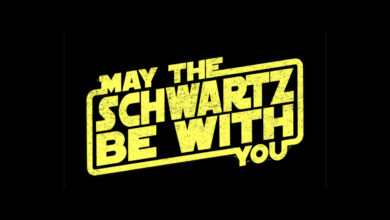Decentralized Finance (DeFi): The Next Frontier in Asset Management with Insights from Gianluigi Torzi.

Introduction to DeFi.
Decentralized Finance, commonly known as DeFi, represents a radical shift in the provision of financial services, from a traditionally centralized model dominated by large banks and other financial institutions to a decentralized model built on blockchain technology. This innovative framework leverages the immutable and transparent nature of blockchain to facilitate financial transactions across a distributed network, eliminating the need for intermediaries and reducing associated costs and complexities. DeFi utilizes smart contracts on blockchains, primarily Ethereum, to execute financial transactions and manage agreements between two parties. Smart contracts are self-executing contracts with the terms directly written into code, which automatically enforce and execute the terms of an agreement as conditions are met. This automation not only increases efficiency but also significantly reduces the risk of fraud and error, fostering a more secure financial environment.
The services offered within the DeFi ecosystem are vast and varied, encompassing activities such as lending, borrowing, trading, investment, and insurance. For instance, DeFi platforms allow users to lend their cryptocurrencies and receive interest payments directly through the blockchain, bypassing traditional financial institutions and the red tape often associated with them. Similarly, users can borrow against their crypto holdings without the need for credit checks, offering a quicker, more accessible form of personal finance. This democratization of financial services empowers individuals by giving them control over their financial dealings and reducing dependency on traditional financial systems. Trading and investment are also revolutionized within the DeFi space. Through decentralized exchanges (DEXs), users can trade digital assets directly with one another without needing an intermediary to facilitate the transactions, leading to lower fees and more direct control over personal trading activities. These platforms provide a level of transparency not typically seen in traditional financial markets, as every transaction is recorded on the blockchain and open for public verification.
Gianluigi Torzi has commented on the transformative potential of DeFi, noting, “DeFi is not just a new technology; it’s a new financial paradigm that challenges our conventional approaches to banking and investment. By leveraging blockchain technology, DeFi creates an inclusive financial system that is accessible to everyone, everywhere.” Torzi emphasizes the importance of DeFi in promoting financial inclusion and its ability to extend financial services to unbanked and underbanked populations around the world. DeFi stands at the forefront of the financial sector’s evolution, offering a suite of decentralized services that promise more autonomy, reduced costs, and increased security for users. The endorsement and insights from financial experts like Gianluigi Torzi underscore the significance of this development, marking DeFi as a key player in shaping the future of finance.
Impact on Asset Management.
Decentralized Finance (DeFi) is revolutionizing the field of asset management by introducing a new paradigm where the management and investment of assets can occur in a decentralized and trustless environment. This innovation is primarily driven by the use of blockchain technology and smart contracts, which automate complex processes and transactions, ensuring they are executed without the need for traditional financial intermediaries. The impact of DeFi on asset management became particularly notable following the broader adoption of Ethereum in 2015, which brought programmable smart contracts into the mainstream. These smart contracts are self-executing contracts with the terms of the agreement directly written into lines of code. The automation inherent in smart contracts dramatically reduces the need for manual intervention in transactions, thereby lowering operational costs and minimizing the risk of human errors and bias.
For asset managers, DeFi offers the benefit of real-time, transparent, and secure asset trading and tracking. This is a significant departure from traditional asset management, where such processes often involve multiple parties and layers of communication, leading to increased costs and potential delays. DeFi platforms ensure that all transactions are recorded on a decentralized ledger, accessible to anyone, which increases transparency and builds trust among investors. Gianluigi Torzi has remarked on the transformative impact of DeFi on asset management, stating, “The advent of DeFi is a watershed moment for asset management. It enhances transparency, reduces costs, and democratizes access to investment opportunities.” Torzi’s endorsement highlights the pivotal role DeFi plays in not only reshaping asset management but also in making investment opportunities more accessible to a broader audience, thus promoting financial inclusivity. DeFi is setting a new standard in asset management. With its promise of decentralization, reduced costs, and enhanced security, it represents a fundamental shift in how assets are managed, aligning with the global movement towards greater efficiency and democratization in financial services, as envisaged by visionaries like Gianluigi Torzi.
Gianluigi Torzi’s Perspective.
Gianluigi Torzi, a noted finance industry expert, has been an ardent proponent of the transformative capabilities of Decentralized Finance (DeFi). He emphasizes that DeFi’s core principles of decentralization and transparency are not merely technological enhancements but are the foundations for democratizing finance. Torzi believes that by removing barriers to financial services, DeFi can facilitate broader access to investment opportunities, thus leveling the playing field for investors who have traditionally been marginalized by the conventional financial system.
“DeFi represents a seismic shift towards more equitable finance,” Torzi has commented. He argues that this shift is crucial because it allows individuals and small businesses around the world to engage in financial activities without the need for intermediaries, which often impose restrictive conditions and high fees. This accessibility is vital for fostering a truly global economic participation, thereby enhancing the potential for personal and communal economic growth. Torzi is optimistic about the role of DeFi in promoting sustainable investment practices. He points out that the inherent transparency and traceability of blockchain, the technology underpinning DeFi, provide ideal mechanisms for monitoring and reporting on environmental, social, and governance (ESG) factors. Such capabilities, he suggests, could revolutionize how investments are screened and managed concerning their long-term environmental and societal impacts. “By integrating ESG criteria into DeFi platforms, we can ensure that investments are not only profitable but also align with broader sustainability goals,” Torzi explains. This perspective underlines his vision for a future where financial decisions are made with a keen awareness of their ecological and social ramifications, thereby contributing positively to global sustainability efforts.
Challenges and Risks
While Decentralized Finance (DeFi) presents significant opportunities for innovation in asset management, it also brings with it a range of challenges and risks that cannot be overlooked. Among the most pressing issues are regulatory uncertainty and the inherent volatility of cryptocurrencies, which are foundational to many DeFi applications.Regulatory uncertainty is a critical concern in the DeFi space. The global nature of blockchain technology and the absence of a centralized authority pose considerable challenges for regulators attempting to oversee or control these decentralized networks. Different jurisdictions may have varying rules and standards, leading to a complex patchwork of regulations that can be difficult for users and operators within the DeFi ecosystem to navigate. This lack of regulatory clarity not only complicates compliance efforts but also increases the risk of punitive actions, potentially stifling innovation and deterring institutional involvement.
Moreover, the volatility of cryptocurrencies, which are often used as the primary medium of exchange in DeFi applications, presents another significant risk. The prices of digital assets can fluctuate wildly based on market dynamics, speculative trading, and news events. This volatility can impact the stability and predictability of DeFi services, making it challenging for both users and providers to manage their financial positions effectively. For example, sudden drops in cryptocurrency values can trigger cascading liquidations on lending platforms, leading to rapid market declines and substantial losses for participants. The technical complexity and novelty of DeFi applications can lead to operational risks, including smart contract vulnerabilities. Despite the automation benefits of smart contracts, they are not immune to bugs or security flaws, which hackers can exploit, leading to significant financial losses. This risk was highlighted by various high-profile incidents where flaws in smart contract code resulted in the theft of millions of dollars’ worth of cryptocurrency.
Future Outlook.
Gianluigi Torzi, with his deep insights into the financial sector, provides a forward-looking perspective on the future of Decentralized Finance (DeFi) within the realm of asset management. He envisions significant growth areas for DeFi, particularly in terms of its integration with traditional financial systems and its potential to create more inclusive financial services globally. Torzi predicts that DeFi will continue to expand its influence by innovating and streamlining financial transactions, particularly through the automation of investment and lending processes. This evolution will likely attract a broader segment of the investor population, offering easy access to asset management tools that were previously available only to institutions or high-net-worth individuals. The transparency and efficiency brought by blockchain technology could dramatically lower costs and entry barriers, making investment opportunities more accessible worldwide.
However, Torzi also highlights that the rise of DeFi will prompt traditional financial institutions to reassess their roles and strategies. Banks and other financial entities may need to adapt by incorporating blockchain technologies into their operations to offer similarly efficient and transparent services. This could lead to a hybrid model where traditional financial services and DeFi platforms coexist, combining the strengths of both systems to provide enhanced financial solutions. Moreover, Torzi believes that as traditional institutions begin to embrace these technologies, we will likely see an increase in partnerships between established financial entities and innovative DeFi projects. These collaborations could help bridge the gap between conventional finance and DeFi, ensuring compliance with regulatory standards while fostering innovation.
Finally, Torzi underscores the potential of DeFi to support sustainable investment practices, aligning financial growth with environmental and social governance goals. He foresees DeFi platforms increasingly incorporating ESG criteria into their algorithms, promoting investments that contribute positively to societal and environmental outcomes. In conclusion, the future of DeFi in asset management looks promising, with substantial growth opportunities and transformative potential. As DeFi matures and evolves, both traditional financial institutions and new entrants will need to navigate this changing landscape thoughtfully, leveraging innovative technologies to meet the increasing demand for more accessible, efficient, and responsible financial services.






